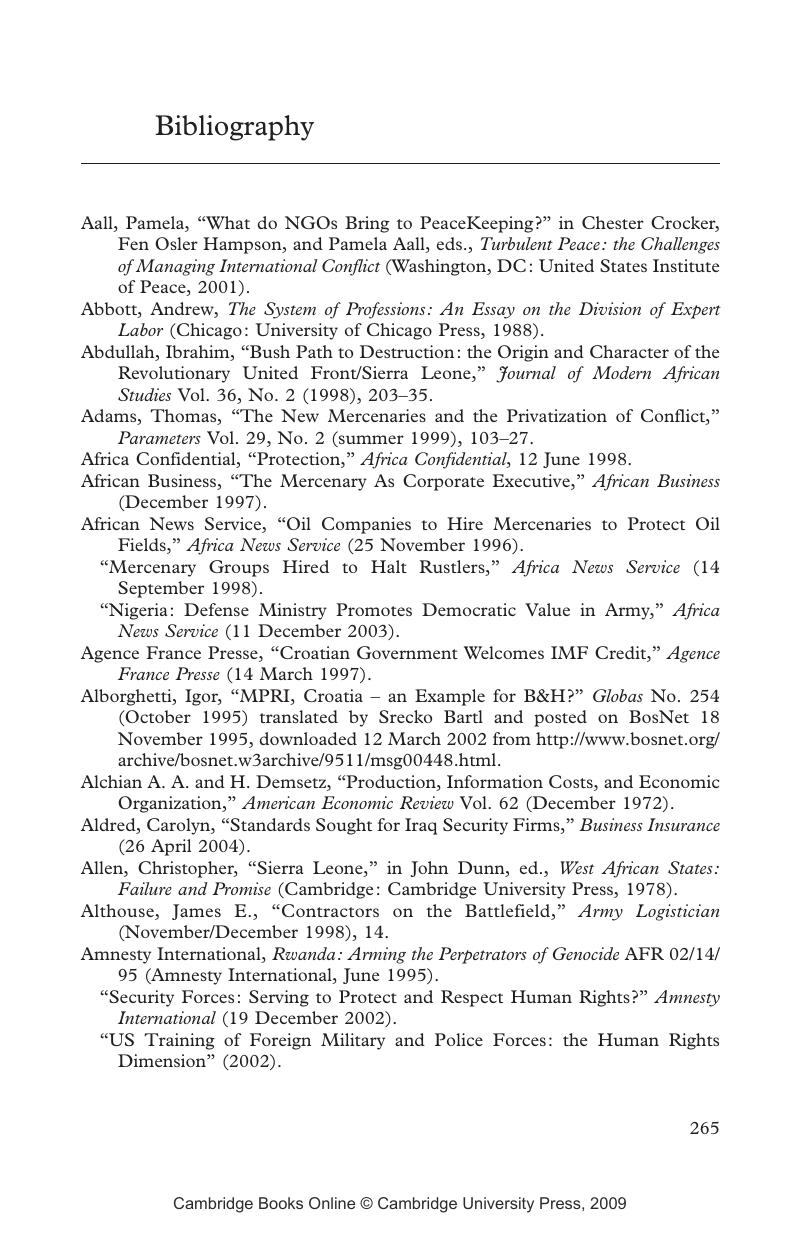Book contents
- Frontmatter
- Contents
- List of figure and tables
- List of acronyms
- Acknowledgments
- 1 Introduction
- 2 Private security and the control of force
- 3 State capacity and contracting for security
- 4 Dilemmas in state regulation of private security exports
- 5 Private financing for security and the control of force
- 6 Market mechanisms and the diffusion of control over force
- 7 Conclusion
- Bibliography
- Index
- References
Bibliography
Published online by Cambridge University Press: 22 September 2009
- Frontmatter
- Contents
- List of figure and tables
- List of acronyms
- Acknowledgments
- 1 Introduction
- 2 Private security and the control of force
- 3 State capacity and contracting for security
- 4 Dilemmas in state regulation of private security exports
- 5 Private financing for security and the control of force
- 6 Market mechanisms and the diffusion of control over force
- 7 Conclusion
- Bibliography
- Index
- References
Summary

Information
- Type
- Chapter
- Information
- The Market for ForceThe Consequences of Privatizing Security, pp. 265 - 301Publisher: Cambridge University PressPrint publication year: 2005
